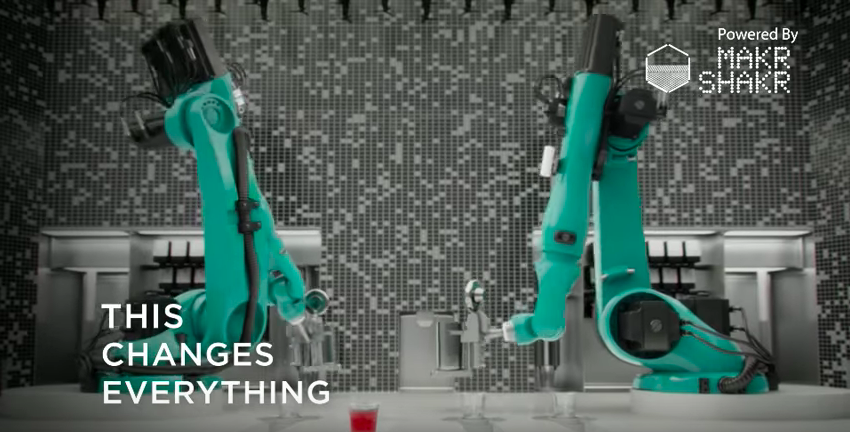You have /5 articles left.
Sign up for a free account or log in.
 Higher ed seems to be a hotbed of worry about a robot-driven jobless future. This is at least true of the edtech people with which I hang around.
Higher ed seems to be a hotbed of worry about a robot-driven jobless future. This is at least true of the edtech people with which I hang around.
Go to any conference that is supposed to be about online learning and educational technology, and you will hear a good deal of conversation about robots.
Worries will be expressed about driverless cars taking all the driving jobs. A recent MIT Technology Review article pointed out that 3.8 million Americans make their living driving, including 1.7 million who drive trucks. Goldman Sachs estimates that self-driving vehicles will eliminate 300,000 jobs a year, once the technology matures.
Driving jobs are just the beginning of the robot-stealing-employment worries. A 2017 McKinsey Global Institute report estimated that around the world, "400 million and 800 million individuals could be displaced by automation”.
At the next academic conference that I attend, I fully expect to hear about robot bartenders. There are over 600,000 bartenders in the US. Makr Shakr, a robot bartender developed at MIT's Senseable City Lab, might one day replace them all.
Should we be worried about robots bringing about a jobless future?
I don’t think so.
I worry that the robots aren’t coming fast enough. And I worry that all this academic anxiety about automation and employment is doing a disservice to our students. A generalized anxiety about robots and jobs seems to be winning out in the higher ed marketplace of ideas. Is it time for a corrective?
The reason that I don’t worry about robots and jobs has something to do with how I understand economics, and something to do with what I know about history.
On the economics side, I’m a fan of rising productivity. Improving wages depends largely on increasing productivity.
If a bar can serve more patrons more quickly with the introduction of robots, then there are more dollars to pay bartenders higher wages. Or if the robots allow the quality of the bar going experience to go up, and people pay more for drinks, then profits and wages can also increase.
This of course assumes that the robots don’t replace all the bartenders. But here is where history comes in. The history of technology has not been mostly about replacing jobs, but changing jobs.
It may be that if a robot is handling most of the routinized cocktail mixing tasks that the people can do what robots can’t. So maybe the bartender will spend her time coming up with new drink concoctions. Or the human bartender will engage in discussion with the customers, listening to their problems and helping them decide which drinks to order.
In the future, we may need less bartenders - but bartending could become a better job. A job that requires more social skills, more technical skills, more creative skills.
My read is that transportation jobs will ultimately benefit from driverless vehicles. That the dangerous and difficult job of long-haul trucking will evolve into a better gig. One where human drivers will navigate the cargo drop-offs and transfers, and where the highway portion of the driving will be less exhausting as the demands on drivers decrease.
What will happen to the 400,00 to 600,000 Uber and Lyft drivers in the US when self-driving cars are a legal, as well as a technical reality? Those jobs may disappear, but they are not very good jobs to begin with. Some reports indicate that only 4% of Uber drivers are still driving for Uber after 1 year. Just how much Uber and Lyft drivers earn is also debated, with a recent MIT report calculating that drivers earn a median profit of $8.55 an hour.
What we hope that will happen is that money not spent on transportation, as robot driven cars should reduce costs and perhaps the need for personal vehicles (which mostly sit idle), will be spent on more socially useful things. On education, or leisure, or anything else that benefits quality of life.
Demand will shift to other activities, activities that will hopefully create new and better jobs.
This is not to say that automation will not cause local disruptions and concentrated job losses. It seems abundantly clear that anyone who is “pro-robot” also needs to be pro public investments for job retraining, education, and worker assistance.
I’d like to propose that we start a higher ed robot fan club.
That we work to counter the prevailing academic worry about a robot-caused jobs apocalypse with a different narrative. One where automation makes society wealthier and creates new and mostly better jobs.
In this new narrative, the most important skills are those that robots can’t do. These skills include creativity, compassion, communication, critical thinking, empathy, and curiosity. Come to think of it, those are the very skills that a liberal arts education is superb at developing.
Why am I wrong to not be worried about the future of jobs and robots?
Am I nuts to see a more positive future resulting from automation, where so many of my academic colleagues are expressing concerns?
Can you point to any historical or current examples where automation has been bad for the overall well-being of a society?
Are there other higher ed people out there who are also more excited than worried about self-driving cars and robots?




